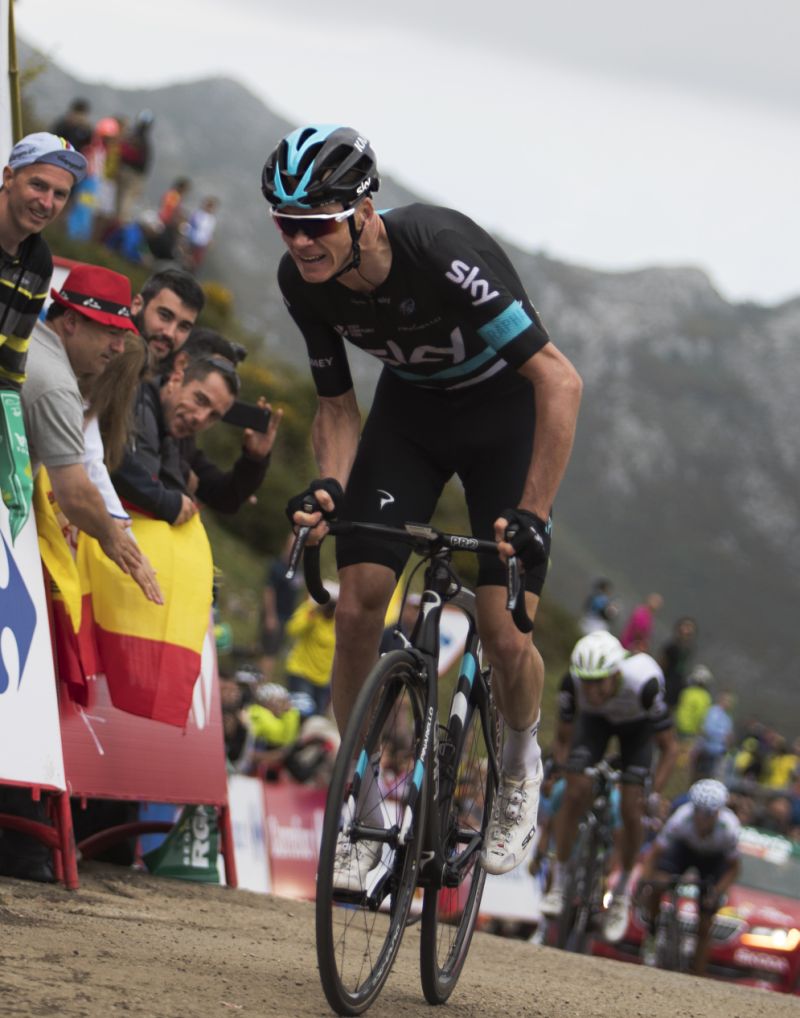
Chris Froome said the 2017 Tour de France champion will be decided in the mountains as he looked forward to a new duel with his biggest challenger this year Romain Bardet (main pix).
While the Tour will go to all five of France’s mountain ranges, there are 20 percent fewer climbs than for 2016 though oranisers insisted they will be steeper next year.
“This Tour will be won in the mountains, the time trials are too small to have any real effect,” said Froome, winner in 2013, 2015 and 2016.
The Briton would be expected to beat Bardet by up to 90 seconds in a 45km time trial. In the 104th Tour, it is just 23km.
“I was pleasantly surprised to see the Planche des Belles Filles on the route again,” said Froome, who won there in 2012.
But Bardet, the 25-year-old great French hope, sensed a chance in 2017.
“Last year’s race was won due the long stretches we spent in the mountains,” he said remembering the four minutes that eventually separated him and Froome.
“When I saw this route I was exultant. There’s never more than two consecutive days in the mountains.”
– Tour climbs –
Of the most challenging climbs, there will be one one in the Vosges, six in the Jura, eight in the Pyrenees, two in the Massif Central and six in the Alps.
Tour director Christian Prudhomme was not sure the high mountains would be decisive.
“I like the look of the Puy en Valey stage, its so tight and winding and allows for very little organisation. It could be chaos,” predicted Prudhomme.
But he insisted the route “has been designed to be won by a true champion”, without naming Froome or identifying any other favourites.
“The framework at the summit finish (at Izoard on the last Alpine stage) is so wonderful to behold it will amplify the exploits of the athletes who exell there,” he said.
Irish rider Dan Martin, who has won stages on the tours in France and Spain, said he felt the route brought him into the picture.
“There’s plenty of scope for damage every single day. You have to survive,” the Irishman told AFP.
“This route is better suited to my style than previous years.”
The race over 3,516 kilometers (2,183 miles) starts in Dusseldorf, Germany on July 1 with a short 13km time trial.
And if the crucial penultimate day’s time trial starting inside Marseille’s Velodrome football stadium is only 23km long, it should be run in the peak summer heat and will notably feature a 1km stretch at an almost 18 per cent gradient.
– Bond route –
The Tour’s toughest stage on paper is the 214km Pyrenean run from Pau to Peyragudes which feature the mountain where the James Bond movie ‘Tomorrow Never Dies’ was partly filmed, and has a summit finish as the fifth climb of the day.
In total contrast, the following day’s stage 13 is a short but spectacular 100km mountain run from Saint Girons culminating in a 27km hair-raising descent to Foix, featuring extreme climbs and descents along the way.
This is followed with a day for punchers and will evoke powerful memories for both the Olympic champion Greg Van Avermaert and world road champion Peter Sagan. The 181km 14th stage culminates in Rodez where the Belgian out-paced Sagan for a stage win in 2015.
The most watched of all the stages by television audiences is the final day jaunt to Paris and the 10 laps of the Champs Elysees generally won by a top sprinters such as Mark Cavendish or Andre Grepel or Marcel Kittel.
Before the Tour gets to the celebrated avenue it whips past proposed 2024 Olympic sites Roland Garros tennis courts and Parc des Princes football stadium. – Agence France-Presse


































